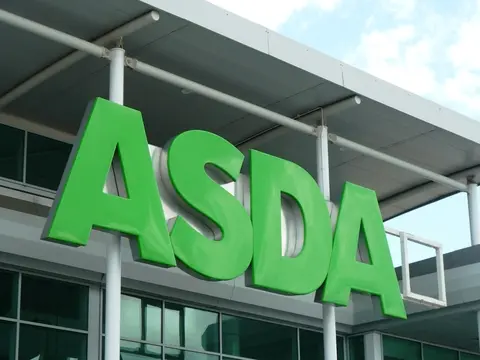
Asda-sainsbury-merger
 Competition and Markets Authority (CMA) has now published its final report on the proposed merger between Asda and Sainsbury, two of the largest three UK supermarkets. After ‘finding it would lead to increased prices in stores, online and at many petrol stations across the UK’, the CMA has formally blocked the merger.
Competition and Markets Authority (CMA) has now published its final report on the proposed merger between Asda and Sainsbury, two of the largest three UK supermarkets. After ‘finding it would lead to increased prices in stores, online and at many petrol stations across the UK’, the CMA has formally blocked the merger.
Stuart McIntosh, chair of the independent inquiry group carrying out the investigation, said:
It’s our responsibility to protect the millions of people who shop at Sainsbury’s and Asda every week. Following our in-depth investigation, we have found this deal would lead to increased prices, reduced quality and choice of products, or a poorer shopping experience for all of their UK shoppers. We have concluded that there is no effective way of addressing our concerns, other than to block the merger.
Previously
Competition and Markets Authority concerned over ‘lessening of competition’
Updated 20th February, 2019
The UK’s Competition and Markets Authority (CMA) has found that the proposed merger between Asda and Sainsbury could lead to a worse experience for in-store and online shoppers as a result of higher prices, a worse shopping experience, and reductions in the range and quality of products. It also indicated that prices could rise at a large number of Sainsbury’s and Asda petrol stations.
Stuart McIntosh, chair of the independent inquiry group carrying out the investigation, said:
These are two of the biggest supermarkets in the UK, with millions of people purchasing their products and services every day. We have provisionally found that, should the two merge, shoppers could face higher prices, reduced quality and choice, and a poorer overall shopping experience across the UK. We also have concerns that prices could rise at a large number of their petrol stations.
Previously:
Sainsbury’s and Asda confirm merger plans
Sainsbury’s chief executive Mike Coupe, has confirmed that the UK’s second and third largest supermarkets – Sainbury’s and Asda – plan to merge, with the deal looking to be completed by autumn of 2019.
Talks between Walmart, the owners of Asda, and Sainsbury’s had reached an advanced stage over the weekend, with an official announcement made this morning (Monday, April 30th, 2018).
If the estimated £10 bn merger is approved it will position the combined group ahead of Tesco – the long-term market leader – and turn the Big Four into the even bigger Big Three.
Market shares before and after the proposed merger
If approved, the supermarket merger will also be the most significant horizontal merger in the sector since Morrisons acquired Safeway in 2004. Unlike that merger, it is anticipated that the existing brand names will remain – meaning that, from a consumer’s point of view at least, very little will appear to change in the short-term.
However, calls have already been made for an urgent investigation by the CMA, given that what was already a highly concentrated market, even following the entry of the discount stores, will become even more concentrated, with the merged firm possibly becoming a virtual monopoly in certain locations. The merger may further increase barriers to entry into the market, and significantly reduce competition in the long run.
Concerns are also being expressed in terms of the considerable monopsony power that the new supermarket giant will be able to exert over its suppliers, should it wish to do so. Supplier’s margins have already been squeezed as the market becomes more concentrated, and the merger can only increase this further. Of course, the CMA will also consider the impact on prices to the consumer, and whether cost savings will be passed on in lower prices.
Former business secretary, Sir Vince Cable, has already called for ‘enforced divestment’ when local competition suffers. The upside for the merged business is that scale economies are likely to reduce costs and increase competitive advantage at a time when price competition drives developments in the sector. There are also likely to be considerable synergies as a direct result of the merger.
However, while it seems almost inevitable, at least in the short to medium term, that job losses will follow as the merged business looks to rationalise its operations, chief executive Mike Coupe has insisted that there are no plans to close stores. It is likely that, even if there is some divestment of stores as a condition imposed by the CMA, it is also likely that the CMA will request that new owners of the divested stores will operate the businesses as ‘going concerns’.
Whether the CMA considers the possible impact of Brexit on the grocery sector remains to be seen. One possible benefit of Brexit is that the supermarket chains may be able to source their products more widely and benefit from any new free trade deals while at the same time not being subject to the common external tariff on non-EU imports which is central to the EU Customs Union. Of course, we await news this week on what the UK government’s position will be on any new customs arrangements with the EU as Brexit negotiations move forward.


